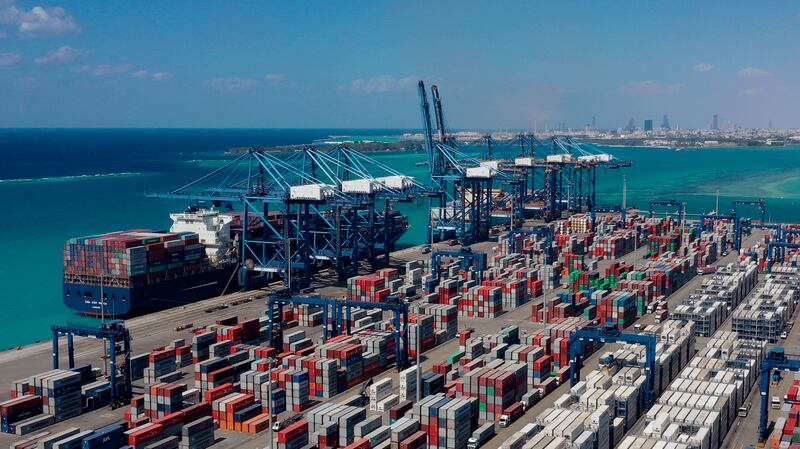Saudi Arabia's sovereign wealth fund, the Public Investment Fund, and Hong Kong-based Cosco Shipping Ports completed the acquisition of a 40 per cent stake in the Jeddah-based Red Sea Gateway Terminal.
The two entities each bought a 20 per cent share in the company that owns the terminal for $280 million. Saudi Industrial Services Company has sold a 21.2 per cent stake for 556.5 million Saudi riyals ($148.4m), it said in a separate statement. However, it will retain a 36.36 per cent shareholding in the terminal operator.
The transaction will bring global shipping expertise through Cosco to the Jeddah-based operator and help boost its business volumes, RSGT said in a statement.
"Both new shareholders will help drive future growth on seaside and landside logistics," the company said in a statement.
"Working closely with PIF and CSPL, we will accelerate our shared vision, further strengthen our customer offering, and elevate our mandate to meet the increasing demand for terminal and logistics services," said Jens Floe, chief executive at RSGT.
"RSGT will continue to focus on developing a niche emerging market operator with a keen focus on ports in the Red Sea and East Africa," he added.
RSGT began operations in 2009 at Jeddah Islamic Port. It is now the biggest terminal in Saudi Arabia, having expanded capacity from an initial 2.5 million twenty foot equivalent container units, or TEUs, to 5,2 million. A 30-year concession was signed with the Saudi Arabia Ports Authority to operate the terminal in 2019, with a view to expanding capacity further to 9 million TEUs.
Developing the kingdom's logistics and transportation hub is a key facet of Saudi Arabia's Vision 2030, which looks to diversify the earnings of the world's largest oil exporter away from hydrocarbons.
Earlier this month, Saudi Arabia announced plans to invest more than 500 billion riyals ($133bn) by 2030 to expand its transport sector as part of a strategy to make the kingdom a global logistics centre.
The Arab world's biggest economy has plans for more than 300 projects in transport and logistics through partnerships with the local and international private sector.
They include launching a new flagship airline, expanding airports, enlarging its railway network, increasing ports' capacity, and investing in futuristic public transport technology such as the Hyperloop.
For seaports, the strategy calls for boosting annual shipping containers handled by the kingdom to 40 million by 2030, up from 9.5 million currently. This will be done through more private sector contracts for seaport operations.
The kingdom has also floated plans for a second national airline as part of the new transport strategy, which seeks to position the country in fifth place in terms of global air passenger traffic
Saudi Arabia's economy is expected to grow 2.4 per cent this year and 4.8 per cent in 2022, the International Monetary Fund said last week.







